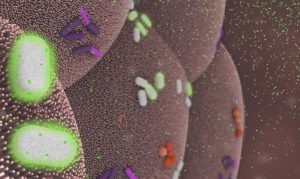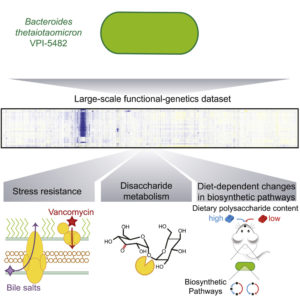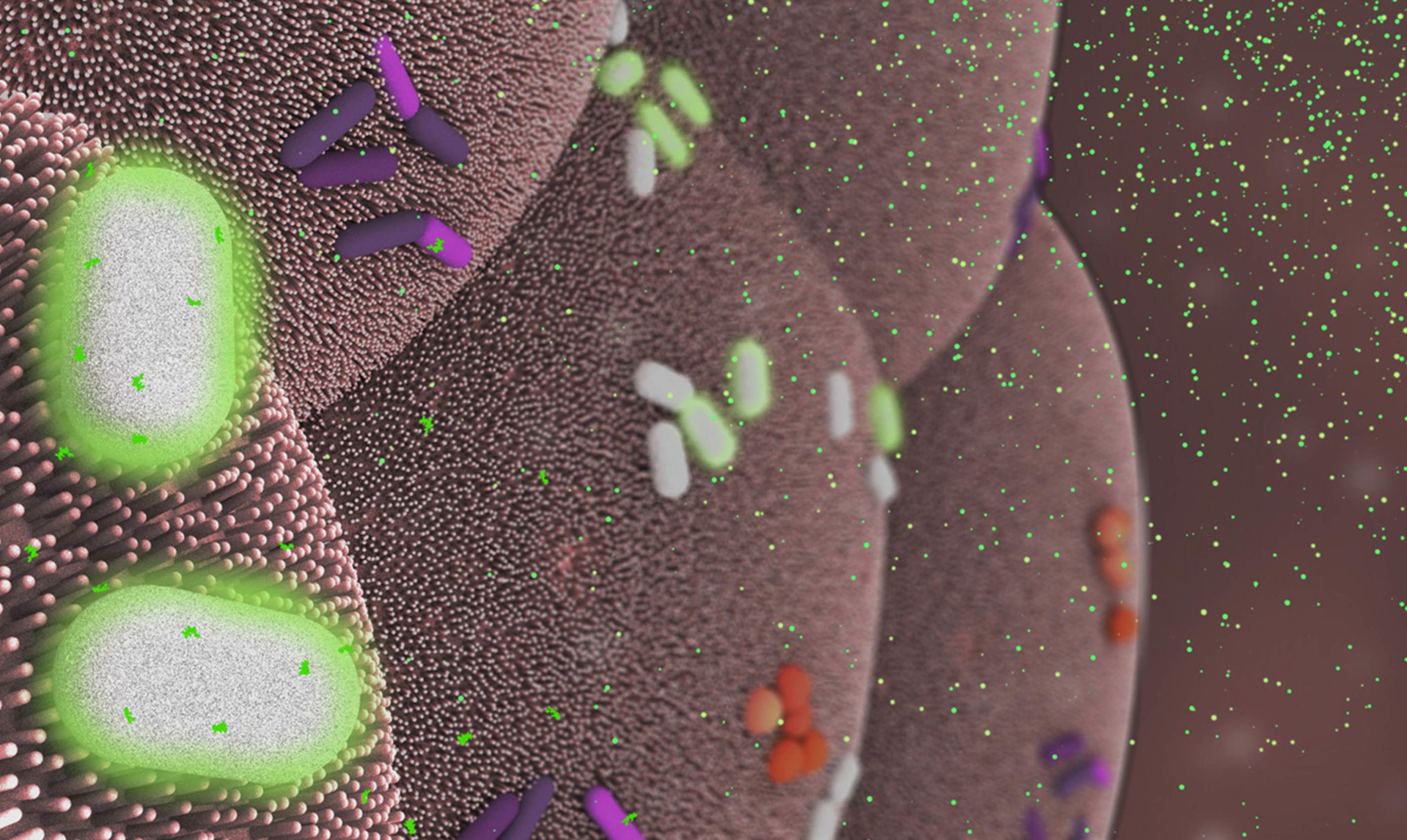
Bacteroides thetaiotaomicron (white) living on mammalian cells in the gut. (Credit: Janet Iwasa, MIT Media Lab)
The community of microorganisms that live in our intestines, called the gut microbiome, is known to play a pivotal role in overall health, and manipulating the community composition is a promising approach for treating a variety of diseases. To unlock that potential, however, greater understanding of the constituent bacteria—in particular, the functions of their protein-coding genes—is needed.
 Researchers in the Environmental Genomics and Systems Biology (EGSB) and Biological Systems and Engineering (BSE) Divisions at Berkeley Lab employed a large-scale functional genomics approach to systematically characterize Bacteroides thetaiotaomicron, a beneficial bacterium prevalent in the human gut. They performed hundreds of genome-wide fitness assays and identified new functions for 40 proteins, including antibiotic tolerance, polysaccharide degradation, and colonization of the GI tract in germ-free mice.
Researchers in the Environmental Genomics and Systems Biology (EGSB) and Biological Systems and Engineering (BSE) Divisions at Berkeley Lab employed a large-scale functional genomics approach to systematically characterize Bacteroides thetaiotaomicron, a beneficial bacterium prevalent in the human gut. They performed hundreds of genome-wide fitness assays and identified new functions for 40 proteins, including antibiotic tolerance, polysaccharide degradation, and colonization of the GI tract in germ-free mice.
The work was done in collaboration with colleagues at Stanford, UC San Francisco, the Chan Zuckerberg Biohub, and UC Berkeley; the results were recently published in Cell Reports.
“Our generalizable genetic approach can be systematically applied to members of the human gut microbiome to rapidly advance our knowledge of these organisms, which can lead to better prebiotic and probiotic strategies to improve human health,” said EGSB staff scientist Adam Deutschbauer, who was the lead author on the paper.
What’s more, Deutschbauer noted, the approach is scalable, thanks to culturing and sequencing strategies (the development of which were supported by ENIGMA and LDRD funding) that make running many genetic assays fast and cost-effective. In collaboration with Adam Arkin’s lab, his team has done similar functional characterizations for about 50 bacteria to date, although this is their first time applying the approach to a human gut bacterium.
Additional Biosciences Area contributors to this work include: senior faculty scientist Adam Arkin, research scientist Hans Carlson, project scientist and lead author Hualan Liu, research scientist Morgan Price, research associate Jayashree Ray, and project scientist Valentine Trotter in EGSB, as well as project scientist Yan Chen and staff scientist Chris Petzold in BSE.




